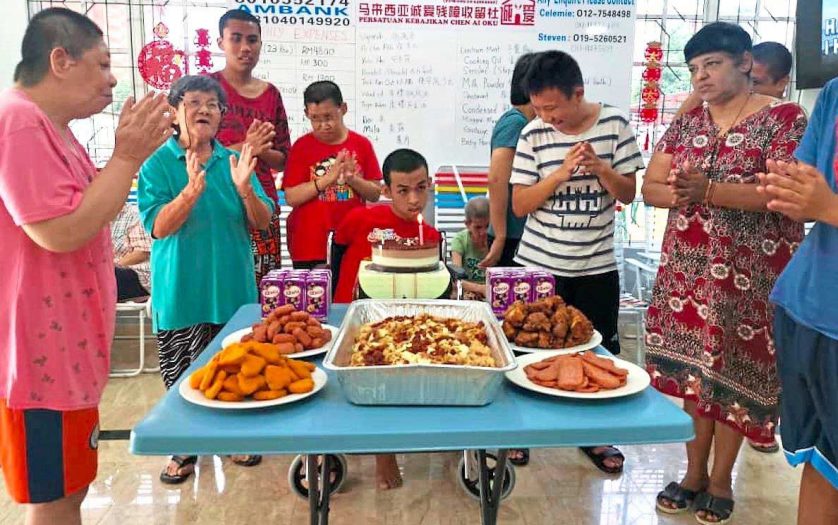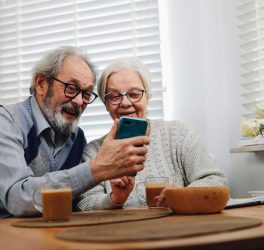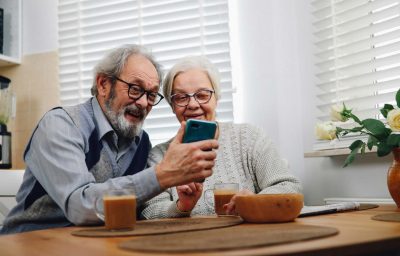
One might wonder why Celemie Phang, 37, would decide to open a home for people with disabilities during the COVID-19 pandemic. But the mother-of-two told The Star that Pusat Kebajikan Chen Ai OKU (Chen Ai) was needed desperately.
The pandemic affected many single-income households, including those who have family members with disabilities or children with special needs, and they couldn’t afford to pay for daycare for their loved ones. Many centres for those with disabilities were closed during the pandemic lockdown.
Phang has an eight-year-old special needs child, so she knew first-hand what these families were experiencing. When her income was reduced due to the lockdown, she was unable tomeet the expense of daycare for her daughter, who has a speech and learning disability.
“I realised that there were many people in the same boat as me.
“These families needed a place where their loved ones would be safe and well-looked after,” she said.
Together with six friends, Phang started Chen Ai, which is located in Kelana Jaya, Petaling Jaya, in June 2020.
“We provide a clean and conducive home, balanced meals and activities for our residents, and we don’t charge them or their families a single sen,” said Phang, who is usually at the centre everyday from 10am to 5pm.
They carefully review each applicant for eligibility.
“This is to ensure that we have room for those who really need it.”
Chen Ai accepts individuals with mental and physical disabilities.
According to Phang, most people learn about them through word-of-mouth, social media or referrals from religious organisations.
At present, the centre houses 23 residents – nine male and 14 female – between the ages of five and 77. The majority of them have learning disabilities.
“There’s this mother and daughter who both have a mild learning disability. Since the father passed away, there was nobody to look after them and they were brought to the centre. They are inseparable and every moment is spent in each other’s company,” shared Phang.
“We also have a five-year-old boy with Down Syndrome whose single mother has to work until midnight to support them. She can’t afford to hire a helper to look after him so she sent him to our centre.”
Another resident is a 21-year-old man who fell down and injured his head when he was a baby.
“Due to a failed brain surgery, he’s no longer able to walk, talk, eat nor drink by himself, and needs to be fed and bathed,” said Phang.
“There are also two uncles in their 50s who are bedridden because they had a stroke.”
Phang added that residents who are more mobile participate in group activities.
“We have group exercise sessions such as walking around the centre, cycling on stationary bikes, and even Zumba dancing,” she said.
“For residents who are sedentary due to stroke or physical disability, we arrange for a massage therapist to come every Saturday to help improve their blood circulation and flexibility.
“We also have a special needs teacher who comes to teach some of the residents how to lead a meaningful and active life,” said Phang.
The centre also welcomes residents who need medical care for their check-ups.
“Some of the residents need medicine for hyperactivity, diabetes, high blood pressure or other conditions, so we will get it for them from the government clinic,” she said. “(The medicine) is usually free, but we bear the transportation costs.”
Monthly rental for the centre’s premises is RM5,000 while utility bills are approximately RM2,500.
“This is mainly due to the household appliances. We need to run the washing machine five times a day to wash all the residents’ clothing and bed linens.
“Some wet their beds and we need to make sure the environment is clean and that there is no bad smell,” she explained. “We also have two freezers and refrigerators to store all the food for the residents,” she said, adding that there are three live-in staff at the centre to help with the cooking and cleaning.
Although this is the first time that Phang has created a charity, helping others is not foreign to her.
“Before we started the centre, my friends and I would often visit and send groceries and supplies to other charity organisations,” said Phang, who works part-time remotely for a freight-forwarding company.
“That’s why when the MCO (Movement Control Order) happened and families were impacted, I discussed with my friends and said, ‘Why don’t we set up a centre to look after the disabled so that their family members can have peace of mind?’
“They can go to work and earn a living and not need to worry about their loved ones who’ll be in good hands,” she said.
When family members were not permitted during the lockdown, Phang said they helped everyone stay in touch via video calls, photos and videos sent through WhatsApp.
Although they are relieved that restrictions have now been lifted, she said they still need to be attentive, specifically when accepting visitors because their residents are extremely vulnerable.
“Visitors need to be fully vaccinated, and of course, masks, hand sanitising and social distancing are a must,” she said.
Phang, who used to work in the accounting line, said that her background has impacted how she operates Chen Ai.
“I’m rather particular about how I manage this centre. We not only want to make sure that we’ve enough for the residents, we also want to make sure there isn’t any excess so that there’s no wastage from spoilage or expiry of food or other perishable items,” she said.
“If people wish to donate, we hope that they’ll call first to find out what the centre needs because we’re accountable for the donations received, whether in cash or provisions, and we want to manage it well.”
If too many donations of fresh produce or perishable items are received, Phang shares them with others in need.
“We’ve sent vegetables to other homes for the underprivileged and toiletries to the low-cost flats in Kelana Jaya,” she said.
Phang says there are many more people that require help but they’ve had to reject.
“A lot of people have requested our help to take care of their loved ones, but I’ve had to turn them away because we don’t have any more room. I need to make sure that our existing residents live comfortably and that the rooms aren’t overcrowded,” she said.








